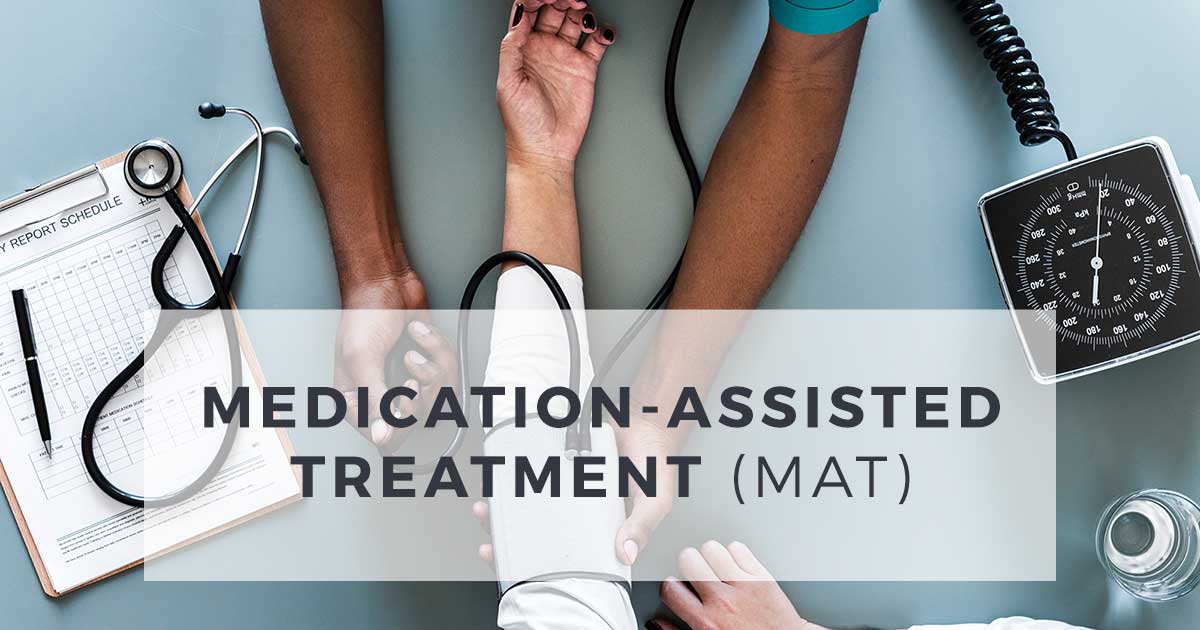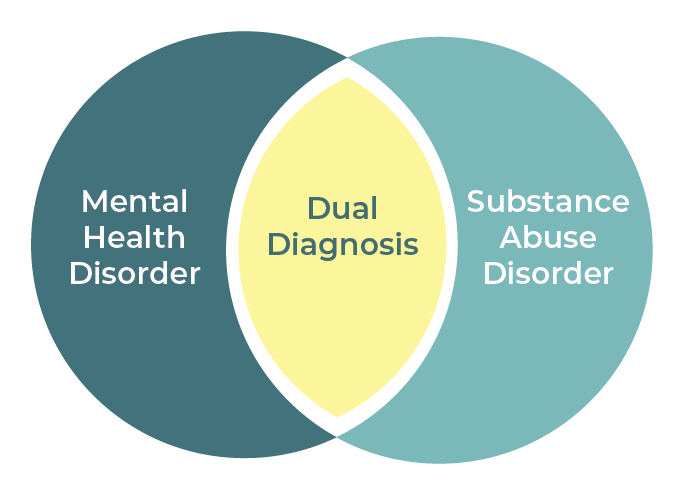Drug Rehab Charlotte NC
Immediate
Placement Available at our Top-Rated Treatment Centers.
Please call us at (855) 410-4488. We work
with most major insurance providers and offer flexible payment
options!

Are you or someone you know struggling with drug addiction in the Charlotte, NC area? Finding the right drug rehab program can be a daunting task, but it is crucial for achieving lasting recovery.
Fortunately, there are many options available to you in Charlotte. Drug rehab programs vary depending on the individual's needs and circumstances.
Inpatient drug rehab involves staying at a facility 24/7 for a certain period of time and receiving intensive therapy and support. Outpatient drug rehab allows individuals to receive treatment while still maintaining their daily responsibilities such as work or school.
Detoxification services help individuals safely withdraw from drugs under medical supervision. Medication-assisted treatment uses medication alongside therapy to manage withdrawal symptoms and cravings.
Family support services are also often available to help both the individual struggling with addiction and their loved ones cope with the challenges of recovery. With so many options available, it's important to find the right program that fits your unique needs and circumstances.
If you or a loved one is strugling with substance abuse, please call us. We can help. (855) 410-4488.
Types of Drug Rehab Programs

You'll find a variety of programs available to help you overcome your addiction and get on the path to recovery. At drug rehab Charlotte NC, you can choose from different types of drug rehab programs that suit your needs.
Drug rehabs offer various treatment programs, each designed to cater to specific levels of care. Inpatient rehab is a residential program where patients stay in a facility for an extended period while undergoing detoxification and therapy. This type of program provides 24-hour supervision, medical attention, and support from peers who are also going through the same process.
Outpatient detox is another option for those who prefer to stay at home during their treatment. Patients can receive medication-assisted treatment (MAT) while attending regular counseling sessions. Intensive outpatient programs (IOPs) are ideal for individuals who require ongoing care but don't need round-the-clock supervision or medical intervention.
IOPs provide structured therapy sessions several times a week and may include group therapy as well. The levels of care vary depending on the severity of addiction, so it's essential to consult with professionals before choosing a drug rehab program that suits your needs best.
Inpatient Drug Rehab
If you're looking for a place to stay and receive treatment, our inpatient program might be the perfect fit for you. Inpatient drug rehab is a type of treatment program that requires patients to reside at the rehabilitation center while they receive help for their substance use disorders. This allows them to completely focus on their recovery without any distractions from the outside world.
Inpatient drug rehab programs are typically offered by rehabilitation centers, which are facilities that specialize in helping individuals overcome addiction. At our treatment center in Charlotte, NC, we provide comprehensive care that includes medication-assisted treatment and therapy sessions with licensed professionals. Our team of experts will work with you every step of the way to develop an individualized treatment plan that meets your unique needs.
The length of your stay at our inpatient program will depend on various factors such as the severity of your addiction and how quickly you progress through the different stages of treatment. However long it takes, we're committed to helping you achieve lasting recovery from substance use disorders. With our support and guidance, we can help you reclaim your life and thrive once again.
Outpatient Drug Rehab
Looking for a flexible treatment option that allows you to continue your daily routines while receiving expert support and care? Our outpatient program may be just what you need to achieve lasting recovery.

At our drug rehab center in Charlotte, NC, we offer outpatient drug rehab as one of our primary treatment options. Unlike inpatient programs, outpatient rehab centers in Charlotte allow patients to live at home during the recovery process. This means you can continue with work or school while attending regular therapy sessions and meetings.
Our addiction treatment program is designed for individuals who don't require round-the-clock supervision but still need substance abuse treatment and support. We understand that everyone's needs are different, which is why we offer tailored recovery services that suit your individual circumstances.
Our team of experienced professionals will work closely with you to create a personalized plan that meets your unique needs and goals. Our outpatient drug rehab also offers medication-assisted treatment (MAT) options for those who require additional medical assistance during their recovery journey.
MAT involves the use of FDA-approved medications in combination with counseling and behavioral therapies to effectively treat substance abuse disorders. If you're struggling with addiction, our comprehensive range of treatment options can help you overcome it and maintain long-term sobriety without disrupting your daily life.
Medical Detox Services
Get ready to kickstart your journey towards lasting recovery with our detox services that'll help you overcome substance abuse disorders.
Our drug rehab in Charlotte, NC, offers detoxification services designed to help you manage the physical and psychological symptoms of withdrawal from drugs or alcohol.
Detox is the first step in addiction treatment. It allows your body to rid itself of harmful toxins and chemicals while providing you with the support and care needed for a successful recovery.
At our treatment centers, we provide residential treatment as well as outpatient options depending on your individual needs. Our goal is to ensure that every patient receives comprehensive care throughout their recovery process, including medication management and counseling.
With our team of experienced professionals, you can rest assured that you'll receive personalized care tailored to your unique situation.
Our detox center provides a safe and comfortable environment where patients can undergo detoxification under close medical supervision. We understand that overcoming addiction can be challenging. That's why we offer 24/7 support to all of our patients.
With our evidence-based approach, we use proven techniques to help patients achieve long-term sobriety. Let us guide you through this journey towards lasting recovery with our effective detoxification services at drug rehab Charlotte, NC, today!
If you or someone you know is currently attempting to quit using alcohol,
help is only a phone call away.
At Atrium Addiction Care (AAC) we
can answer questions you have and share more information about our
treatment options.
Give us a call today at
(855) 410-4488 for information on
various treatment options..
Medication-Assisted Treatment
Let's explore how medication can assist in your addiction treatment journey at drug rehab charlotte nc. Medication-assisted treatment is an evidence-based approach to addictive treatment that combines medication with behavioral therapy and counseling. With this approach, you'll receive medications like methadone, buprenorphine, or naltrexone to help manage withdrawal symptoms and cravings associated with substance abuse.

To make the most of your medication-assisted treatment plan, here are three helpful tips for those battling alcohol addiction or drug addiction:
1) Stick to your schedule - it's essential to take medications exactly as prescribed by your healthcare provider.
2) Attend counseling sessions regularly - therapy and counseling are crucial components of medication-assisted treatment.
3) Communicate openly with your healthcare provider - let them know if you experience any side effects or concerns about the medications you're taking.
Rehabs in Charlotte offer personalized medication-assisted treatment plans tailored to each patient's unique needs. Your healthcare provider will work closely with you to determine which medication works best for you based on factors such as the type of substance used and other health conditions.
Remember that there's no one-size-fits-all solution when it comes to addiction treatment, but medication-assisted treatment has shown significant success rates in helping individuals achieve long-term recovery from substance abuse.
Incorporating medication into your addiction treatment journey may seem daunting at first, but rest assured that it can be a vital tool in managing withdrawal symptoms and cravings associated with drug or alcohol addiction. Embrace this evidence-based approach to addictive treatment and stay committed to your personalized plan for lasting results.
Cognitive Behavioral Therapy
You'll love how cognitive behavioral therapy (CBT) can help you understand and change negative thought patterns that contribute to addiction. This form of therapy is often used in drug rehab centers to treat substance abuse and assist with addiction treatment.

Rehab centers that offer outpatient programs often incorporate CBT into their recovery process. The goal is to provide individualized care by tailoring the therapy sessions to meet each person's unique needs. During these sessions, you'll work with a therapist who'll help you identify negative thought patterns and replace them with more positive ones.
CBT is an evidence-based approach that focuses on teaching individuals coping skills to overcome triggers and cravings associated with their addiction. This type of therapy has been shown to be effective in treating not only substance abuse but also depression, anxiety, and other mental health disorders.
Incorporating CBT into your recovery process can be a game-changer when it comes to achieving lasting sobriety. With the support of trained professionals at drug rehab centers, you can learn valuable skills that'll help you maintain long-term recovery even after leaving treatment. So why wait? Take the first step towards lasting change today by reaching out for help and exploring your options for addiction treatment!
Dialectical Behavioral Therapy
If you're struggling with intense emotions and feeling overwhelmed, dialectical behavioral therapy (DBT) can provide you with effective coping mechanisms to manage those feelings and live a more fulfilling life. DBT is a type of therapy that was originally developed to treat borderline personality disorder, but it has since been used to treat other mental health conditions, including substance abuse.
Here are some key aspects of DBT that make it an effective choice for substance abuse services:
- Holistic approach: DBT focuses on the whole person, not just their addiction or mental illness. It addresses physical, emotional, and environmental factors that contribute to addictive behaviors.
- Recovery programs: DBT is often used alongside other recovery programs like 12-step programs or cognitive-behavioral therapy.
- Mental Health Services Administration approved: The Substance Abuse and Mental Health Services Administration recognizes DBT as an evidence-based practice for treating substance use disorders.
- Centers in Charlotte: There are several centers in Charlotte that offer DBT as part of their substance abuse treatment services.
DBT teaches individuals how to regulate their emotions through mindfulness practices and specific skills training. This can help prevent relapse by providing tools to cope with difficult situations without turning to drugs or alcohol. Additionally, it helps individuals develop better communication skills and build stronger relationships with others.
If you're looking for a comprehensive approach to substance abuse treatment in Charlotte, consider trying DBT as part of your recovery plan.
Trauma-Informed Care
Trauma-informed care is a therapeutic approach that recognizes the impact of trauma on individuals and incorporates this understanding into all aspects of treatment. This type of care is especially important in drug rehab Charlotte NC, where substance abuse often stems from underlying issues such as past trauma or mental health disorders.
Trauma-informed care involves creating a safe and supportive environment for clients to explore their experiences and emotions. In addiction recovery, trauma-informed care can help individuals address the root causes of their substance abuse. By acknowledging the impact of trauma on their lives, clients can begin to heal from past experiences and develop healthy coping mechanisms.
Counseling options such as cognitive-behavioral therapy (CBT) and eye movement desensitization and reprocessing (EMDR) are often used in conjunction with trauma-informed care to help clients process traumatic events. Peer support is also an important aspect of trauma-informed care in drug rehab Charlotte NC. Group therapy sessions allow clients to connect with others who have experienced similar struggles, providing a sense of community and validation.
By incorporating trauma-informed care into addiction treatment, individuals can receive comprehensive support for both their substance abuse and underlying issues related to past traumas or mental health disorders.
Holistic Treatment
If you or a loved one is struggling with substance use disorder, finding the right drug rehab Charlotte NC facility can make all the difference in your recovery journey.

One approach to treatment that's gaining popularity is holistic treatment. Unlike traditional rehabilitation facilities that focus solely on addressing physical addiction, holistic treatment aims to treat the whole person - mind, body, and spirit.
At a holistic drug rehab center in Charlotte NC, you'll have access to a range of treatment services designed to address every aspect of your addiction and help you achieve lasting recovery. This might include individual counseling sessions to explore underlying traumas or mental health issues that may be contributing to your substance abuse, as well as group therapies like yoga or meditation to help you develop coping strategies and life skills.
In addition to these more alternative forms of therapy, many holistic rehabilitation facilities also offer family support programs. These programs recognize the vital role that family members play in an addict's recovery journey and provide education and resources for loved ones who are trying to support their addicted family member while also taking care of themselves.
By focusing on wholeness rather than just symptom management, holistic drug rehab centers offer a unique path towards long-term healing from addiction.
Dual Diagnosis Treatment
For those struggling with addiction and co-occurring mental health disorders, dual diagnosis treatment can provide a comprehensive approach to addressing both issues simultaneously. Dual diagnosis refers to the presence of both substance abuse and behavioral health conditions. It's essential to treat both in order to achieve long-term recovery.

At drug rehab Charlotte NC, we offer a specialized rehab program that combines addiction treatment services with behavioral health care. Our team of experts works together to create an individualized treatment plan for each person based on their specific needs. The goal of our dual diagnosis program is to help individuals achieve sobriety while also managing their co-occurring disorders.
Recovery management is a crucial component of our dual diagnosis program. We understand that achieving sobriety is just the beginning of a lifelong journey towards wellness. Our team provides ongoing support and resources for individuals as they navigate through their recovery process.
With our comprehensive approach, we strive to help individuals not only overcome addiction but also improve their overall well-being and quality of life.
Atrium Addiction Care offers free and
confidential guidance to those suffering from addiction many of the
therapies listed above are available at our treatment centers located
across the United States.
Call us today to discuss your options
for treatment (855) 410-4488 for
information on various treatment options..
Aftercare Services
If you've completed dual diagnosis treatment at a drug rehab center in Charlotte, NC, congratulations! You've taken a significant step towards recovery from substance abuse and mental health issues.
However, it's essential to remember that recovery is an ongoing process. The next crucial step is finding aftercare services to help prevent relapse.
Aftercare services are designed to support individuals who have completed addiction services and returned to the community. These services offer various options for continued care and support, including sober living homes, alumni programs, support groups, and individual counseling sessions.
Aftercare helps individuals maintain sobriety while adjusting back into their daily routine. One of the most popular aftercare services is sober living homes. These homes provide a safe and supportive environment for individuals in early recovery who need more structure than they would get in their usual home setting.
Alumni programs are another great option as they allow people to stay connected with others who have also been through addiction treatment. Support groups such as Alcoholics Anonymous or Narcotics Anonymous can provide emotional support and coping strategies for those struggling with addiction.
Overall, aftercare services are critical in maintaining long-term sobriety and preventing relapse after completing drug rehab in Charlotte, NC.
Family Support Services
Let's explore the benefits of family support services, which can provide invaluable assistance for loved ones coping with addiction and mental health challenges in drug rehab Charlotte NC.
Substance abuse affects not only the person using drugs and alcohol but also their family members. Family support services aim to help the loved ones understand what their family member is going through, learn how to cope with the situation, and provide them with emotional support.
These services are designed to educate families about substance abuse, its causes, and effects. They offer various intervention programs that teach families how to approach their loved one about seeking treatment. Family support services also provide group therapy sessions where family members can share their experiences with other people who have similar struggles. It helps them realize that they're not alone in this journey.
In addition, these services offer practical assistance such as counseling, financial aid, and legal advice if required. It ensures families have access to all necessary resources during treatment provides for their loved one's recovery journey.
Overall, family support services play a crucial role in helping the entire family unit recover together from drug or alcohol addiction at drug rehab Charlotte NC without feeling isolated or helpless while facing these challenges together.
Insurance Coverage for Drug Rehab
Getting the right insurance coverage can be a lifesaver for families struggling to support their loved ones in their journey towards recovery at drug rehab Charlotte NC. It's no secret that substance abuse and addiction can lead to financial strain, making it difficult for some individuals to afford quality treatment.

However, many drug rehab centers accept various forms of insurance, making getting help more accessible. Before choosing a drug rehab center, it is crucial to check what types of insurance they accept. Some facilities may only take certain types of insurance or require additional out-of-pocket payments depending on the level of care needed.
Addiction specialists and treatment centers are available to provide guidance on what options are available and how best to utilize them. In addition, it is essential to understand the different levels of care when seeking insurance coverage for drug rehab.
There are outpatient programs that allow individuals to continue with daily activities while attending therapy sessions during scheduled appointments. On the other hand, inpatient programs offer around-the-clock medical supervision and intensive therapy services for those requiring more structured support.
Knowing these options can help you make an informed decision about which drug rehab program is right for your loved one's needs.
Cost of Drug Rehab
You're probably feeling overwhelmed by the cost of addiction treatment, but understanding the expenses associated with recovery can help you make an informed decision about your loved one's future.
Here are four things to keep in mind when considering the cost of drug rehab in Charlotte, NC:
-
Inpatient drug rehab is typically more expensive than outpatient treatment because it involves round-the-clock medical supervision and accommodations.
-
Medication-assisted treatment (MAT) may add to the overall cost of substance abuse treatment, but it can be a helpful option for those struggling with opioid or alcohol addiction.
-
Detox programs often come at an additional cost and may be necessary for individuals who have developed physical dependence on drugs or alcohol.
-
Insurance companies may cover some or all of the costs associated with drug rehab, so it's important to check what your policy covers before making any decisions.
While the cost of drug rehab can seem daunting, it's important to remember that investing in your loved one's recovery is priceless. Seeking professional help for addiction can lead to long-term sobriety and improved quality of life for both the individual struggling with substance abuse and their loved ones.
Consider researching different options and speaking with healthcare providers to find a suitable program that fits within your budget and meets your loved one's needs.
Does Your Insurance Provider Cover Treatment for You?
AAC is in network with many insurance companies and treatment can be free depending on your policy and co-pay/deductible. Call us today to see if you are covered: (855) 410-4488
Finding the Right Drug Rehab Center
Finding the right center for addiction recovery can be a challenging process, but it's crucial to take the time to research and evaluate various options in order to ensure the best possible outcome for your loved one.
When considering drug rehab Charlotte NC, it's important to first understand the types of treatment settings available. Some programs offer medication-assisted treatment, which uses medications like methadone or suboxone to help manage withdrawal symptoms and cravings. Others may focus on more holistic approaches, such as yoga or meditation.
It's also important to consider whether a program offers specialized treatments for specific addiction problems. For instance, if your loved one struggles with both substance abuse and mental health disorders, look for centers that offer dual diagnosis treatments. Additionally, it's worth exploring different levels of care within each program – some may have an intensive outpatient program (IOP) option that could be a good fit for someone who doesn't require 24/7 supervision.
Ultimately, finding the right drug rehab center is about finding a program that aligns with your loved one's unique needs and preferences. Take advantage of resources like online reviews and referrals from healthcare professionals or support groups in order to make an informed decision.
Remember that recovery is a journey – choosing the right center is just one step in helping your loved one achieve lasting sobriety and wellness.
Frequently Asked Questions
How long does the drug rehab program typically last in Charlotte, NC?
When it comes to drug rehab programs, the length of treatment can vary depending on a number of factors. Generally speaking, most programs last anywhere from 30 to 90 days. However, some individuals may require longer treatment periods in order to fully recover from their addiction.
The duration of the program will depend on a variety of factors including the severity of your addiction, the type of substance you were using, and any co-occurring mental health conditions that may be present. It's important to work closely with your treatment team in order to determine the best course of action for your specific needs and goals.
Are there any specialized drug rehab programs for LGBTQ+ individuals in Charlotte, NC?
If you identify as part of the LGBTQ+ community and are in need of drug rehab services in Charlotte, NC, there are specialized programs available to meet your needs.
These programs understand the unique challenges that individuals from this community face and provide a safe and supportive environment for recovery.
Services may include counseling specific to LGBTQ+ issues, support groups with others who share similar experiences, and medical care that is sensitive to individual needs.
It's important to find a program that is tailored to your specific situation so that you can receive the best possible care during your recovery journey.
Reach out to local resources or treatment centers to learn more about these specialized programs in Charlotte, NC.
What happens if a patient relapses during the drug rehab program in Charlotte, NC?
If you happen to relapse during a drug rehab program in Charlotte, NC, don't give up hope. Relapse is a common occurrence and doesn't mean that the treatment has failed.
Your rehab team will work with you to identify the triggers that led to the relapse and help you develop new strategies for avoiding them in the future. You may also need to adjust your treatment plan or participate in additional therapy sessions.
Remember, recovery is a process, and setbacks are a natural part of that process. The important thing is to stay committed to your goals and continue working towards long-term sobriety.
Is it possible to continue working or attending school while in an outpatient drug rehab program in Charlotte, NC?
While attending an outpatient drug rehab program in Charlotte, NC, it may be possible to continue working or attending school. This type of treatment allows you to receive care and support while maintaining your daily routine.
However, it's important to consider the level of commitment required for successful recovery. Outpatient programs typically require regular attendance at counseling sessions and meetings with healthcare providers. It may also be necessary to make lifestyle changes and avoid triggers that could lead to relapse.
It's important to discuss your individual needs and responsibilities with healthcare providers before beginning treatment to determine if outpatient care is the best option for you.
What type of support is available for families of individuals undergoing drug rehab in Charlotte, NC?
If you have a loved one who's undergoing drug rehab in Charlotte, NC, it's important to know that there are various types of support available for families.
One common form of support is family therapy sessions where the entire family can come together to discuss how they've been affected by addiction and work on communication skills.
Additionally, many rehab facilities offer education and resources for families to better understand addiction and learn healthy ways to support their loved one's recovery journey.
Some may also offer support groups specifically for family members where they can connect with others going through similar experiences.
Remember that while your loved one is undergoing treatment, it's important to prioritize your own self-care too. Reach out to therapists or support groups for yourself if needed, and remember that recovery is a process that takes time and patience from everyone involved.
Find a Treatment Center that is Right for You
Congratulations on reaching the end of this informative article about drug rehab programs in Charlotte, NC. By now, you've learned about the various types of drug rehab programs available to those seeking help for addiction.
You've also discovered the importance of family support services, insurance coverage, and the cost involved. If you or someone you know is struggling with addiction, it's important to seek professional help immediately.
With a variety of options available in Charlotte, finding the right drug rehab center can be overwhelming. However, by understanding your needs and preferences, along with research and consultation with professionals, you can find a program that works best for you.
Remember that recovery from addiction is possible with dedication and commitment. Don't let fear or uncertainty hold you back from seeking help. Take action today towards a healthier and happier life, free from addiction!
